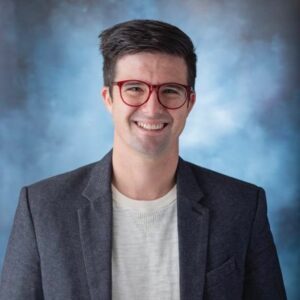
Human Pedagogy
They tell you that it gets easier.
They are damned liars.
Every single one of them.
Each consecutive day is harder than the one before it, and it doesn’t start rosy. They arrive early. They don’t tell you that, either. Thirty-seven to thirty-eight weeks at the latest. Or twenty-nine. They don’t tell you just how small they are. Four pounds, one ounce and three pounds, two ounces in Nettie’s and Lucy’s case.
They don’t tell you about how they’ll be immediately separated from one another in the NICU or the weeks you’ll spend there or how you’ll come to crave that coffee that tastes like it has been filtered through an old sock. They don’t tell you about forehead IVs. They don’t tell you about the nurses that are godsends and the doctors that are not.
They tell you that you will eventually leave, but they don’t tell you when.
They don’t tell you that you’ll cart around two vital sign monitors everywhere you go when you do. They don’t tell you about all the times that you’ll wake up panic-stricken at 2AM when the rhythmic beeping stops because the strap has slipped off their chest. Or about the time you will rush back to the NICU when it’s still on.
They don’t tell you that there will be double the literal and metaphorical shit. Double everything: pain, joy, mess, love, difficulty. They don’t tell you that there will be two of them and they are each their own person. But there are and they are.
They tell you that that season will pass.
It will.
But that doesn’t mean it gets easier.
I became a parent of identical twins early in my teaching. I didn’t tell my students when my daughters were born. I believed in caring for my students as humans—cura personalis and all that—but I was also advised that I was not to be their friend. That there should be a distance to the professorial relationship.
I also became a doctor that eventful semester. I didn’t tell my students when I defended my dissertation. I didn’t request that they start addressing me as “doctor” for the remainder of the semester. I shied away from accolades and self-promotion.
One day after class a student inquired about the patient identification wristband I was wearing. I explained that I had not been hospitalized, but the band allowed me in and out of the NICU, where I had been sleeping and where Nettie and Lucy were to spend several weeks.
The next class I received a handwritten note of congratulations and well wishes.
In that moment I learned that caring for students as people involves more than just recognizing their humanity. It means allowing them to see ours as well.
Three years later when my partner was diagnosed with cancer, voice cracking and holding back tears, I told my students of the diagnosis and positive prognosis. They sent notes. Gift cards. Signed up for my family’s MealTrain. Beth has now passed her one-year anniversary of showing no evidence of disease.
We teach real humans. We are also ourselves real humans. There is no prescriptive practice for being human. There is also no prescriptive practice for putting our humanity on display within a learning community.
But I have come to learn that bringing less than my full self to teaching is of benefit to no one.
Leave a Reply